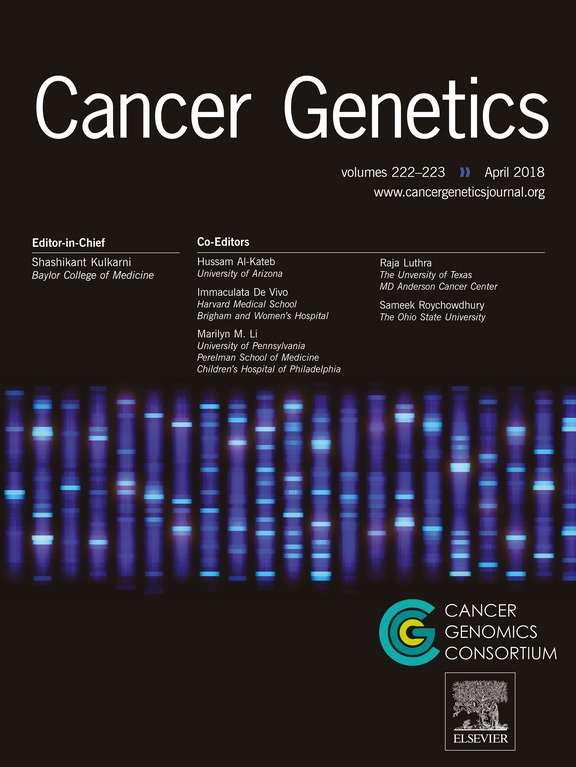2024 Keynote Speakers

Melissa Davis, PhD
Melissa B. Davis, PhD is the newly appointed Director of the Institute of Translational Genomic Medicine at Morehouse School of Medicine, and Distinguished Investigator with the Georgia Research Alliance. She also serves as Scientific Director of the International Center for the Study of Breast Cancer Subtypes (ICSBCS), (Interim) Director of Health Equity for the Englander Institute of Precision Medicine and Associate Professor of Cell and Developmental Biology in the Department of Surgery and at Weill Cornell Medicine in New York, NY. She is also a Cancer Ethnicity Scholar, co leading the PolyEthnic-1000 project at New York Genome Center.

Irene Ghobrial, MD
Dr. Ghobrial is the Senior Vice President for Experimental Medicine, Director of the Center for Early Detection and Interception of Blood Cancers, Lavine Family Chair for Preventative Cancer Therapies, CoLeader of the Lymphoma/Myeloma Cancer Center Program, Director of the Ghobrial Lab, and Professor of Medicine at the Dana Farber Cancer Institute. The focus of her research is early screening, identification of novel biomarkers of disease progression and the development of therapeutic interceptions in pre-malignant conditions. Dr. Ghobrial leads translational studies to define genomic and immune mechanisms of disease progression from precursor myeloma as well as clinical trials to intercept disease progression.
Dr. Davis received her Ph.D. in Molecular Genetics at the University of Georgia (Athens, GA, USA) where she completed groundbreaking work on developmental functions of steroid signaling in model organisms. She completed postdoctoral training in Functional Genomics and Systems Biology at Yale School of Medicine (Human Genetics) and the University of Chicago (Human Genetics and Institute for Genomics and Systems Biology). Here work involved key elements of the ModENCODE project, showing the genome-wide and tissue-specific dynamics of hormone receptor binding, establishing the dynamics of these functions on a cellular level. Her postdoctoral training in Cancer Health Disparities at University of Chicago at the Interdisciplinary Center for Health Disparities, led the current trajectory of her work to uncover the biological determinants of cancer health disparities and how they intersect with marginalization of minoritized population. Dr. Davis has published groundbreaking findings that established a new lens to study associations of biological factors in cancer outcomes as related to genetic ancestry. Specifically, she has discovered links between African ancestry and tumor burdens that have a disproportionate burden in people across the African diaspora. Dr. Davis is a pioneer in the field of “disparities genomics,” with specific focus in breast cancer expanding into prostate and gynecological cancers in recent years. Her current findings involve utilizing quantified ancestry to unravel genetic vs environmental influences in tumor biology among race/ethnic groups, including epigenetic cell signaling and immunological responses in the tumor microenvironment and systemic immune regulation. These novel opportunities to develop precision medicine applications in minority populations, are part of a concerted effort to increase knowledge of genomic profiles of underrepresented minoritized and under-represented cancer patients. Her work is a prime example of how inclusion of diverse ethnic groups can empower research designs for discovery of novel or unique tumor biology.
She earned her medical degree from Cairo University School of Medicine, Egypt. She completed her residency in Internal Medicine at Wayne State University, Michigan, and a Hematology/Oncology Fellowship at the Mayo Clinic College of Medicine, Minnesota, before joining Dana-Farber in 2004.

Alan Rubin, PhD
Alan Rubin is a senior research officer in the Walter and Eliza Hall Institute (WEHI) Bioinformatics Division and Co-head of the WEHI Multiplexed Assay Technology Hub. He completed his PhD in Genome Sciences at the University of Washington in 2013 with Prof Phil Green. Alan serves on the executive committee of the Atlas of Variant Effects Alliance, an international collaborative effort to produce multiplexed functional data to inform human disease, and also leads its Data Curation and Dissemination workstream.

